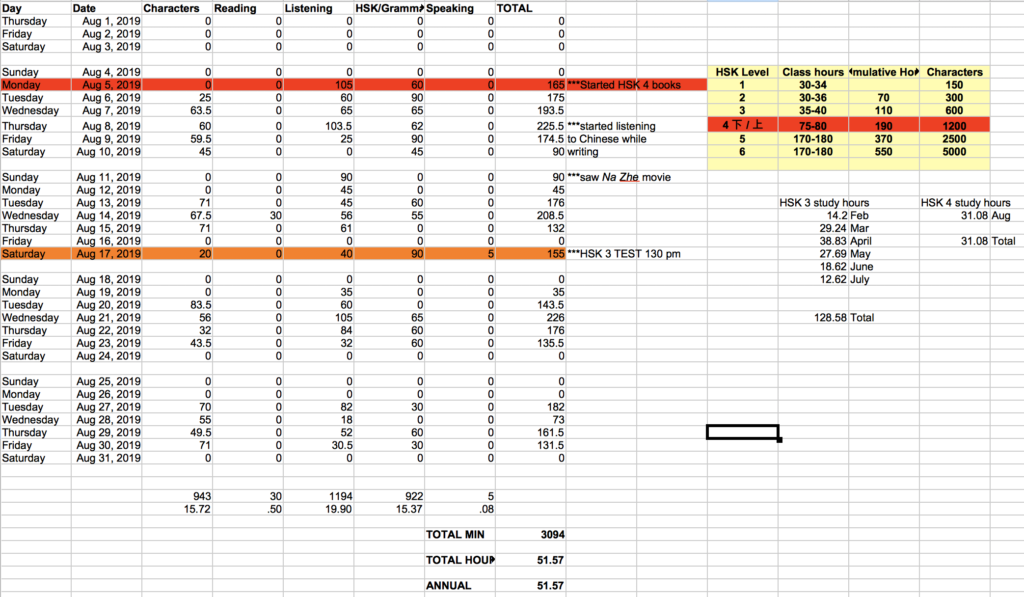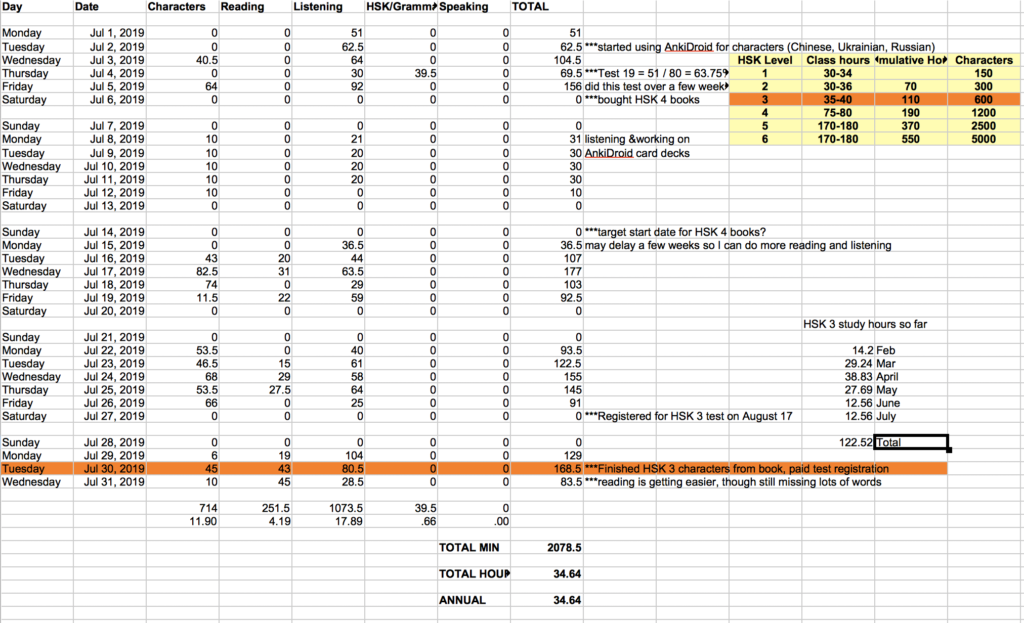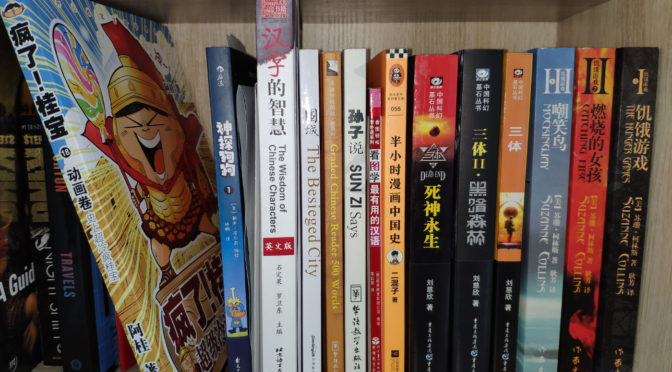You will recall that I recently completed my HSK 3 test and still waiting on the results. Since taking the test, however, it seems that there is more dialogue among my colleagues and I about studying Chinese, all of it very supportive. It’s with that in mind that I wanted to share with you the general approach I have to studying Chinese on my own:
There are a few approaches I have and it’s important that I keep things as diverse as possible otherwise studying would get stale. In general, my approach looks something like this:
- HSK books for characters (one hour per working day), grammar, and a structured approach (one hour after work per working day)
- QingTing for unknown audiobooks (30 minutes or more while walking)
- NetEase for gym cardio time (30 minutes while on the treadmill at the hotel gym)
- Graded Reader books for familiarization (audio books mainly, used while walking)
- Reader APP for sight reading practice (a few minutes whenever I’m on the subway)
- Other reading material to supplement / practice / make useful the language (notes from hotel cleaners, advertisements, notices, etc.)
- AnkiDroid flashcards (10-20 minutes when walking)
- Language exchange partner (mostly for typing/reading practice through WeChat… which has a built-in translation function)
The core material I use are the HSK books and either music or audiobooks for a total of between 2 and 3 hours per working day. Here’s a screenshot of my August study hours:

You’ll notice a few things right off the bat:
- First, basically no Reading or Speaking. I’m not focusing on those two skills just yet mainly because in order to work on those skills you need a wider vocabulary. You’ll note that there is only “5 minutes” listed under the Speaking column on August 17 which was a conversation with a Chinese guy at Changping Park about this very issue of learning vocabulary. It sounded like he wanted to be language partner but I didn’t want to disappoint him with my busy work schedule so I didn’t make the offer. That’s fine. I’m focusing on vocabulary and character recognition.
- I’m tracking how long it takes me to complete a level of Chinese. Level 3 took me about 130 hours to complete, 20 hours, or about 15%, more than the “recommended” class hours. If that’s the case, then I can probably expect to spend about the same if not slightly more time than that on Level 4. This “time sheet” especially helps on those days when I really don’t want to write any more Chinese characters. But, let’s face it, what else would I do during my breaks? Get those hours in!
- I counted watching a movie. Yes, the Na Zhe movie, about a young boy born to be angry (actually, with a red spirit of some sort, his “brother from another mother” is the blue spirit… I’ll let you look it up : ). This was my approach in July and is something I’ll do again after I finish the HSK 4 books. Some may say that watching movies doesn’t count as “study” but talk to any successful language learner and you’ll hear something along the lines that they either watched TV series or movies in order to learn. It may be that they didn’t actually learn much of substance from those things, but those materials did keep them motivated to keep studying, and that’s an important thing to have.
With that, take a look at my July study hours:

For July I spent the month trying to actually use Chinese rather than just to study it, though it didn’t help that July was also spent playing catch up with the characters. I didn’t start writing out the HSK-specific characters until I had almost finished the workbooks so I had to go through the book again and write them out (about 25-30 times each).
But to get back to the point of using the language, this is an important point, however, and one I noticed among those that had attained a higher level of Chinese proficiency: what is the use of learning this language?
The issue comes down to the fact that, like many of my colleagues, we’re English teachers, which means our job is to teach English pretty much to everyone. We only need basic “foreign language” skills to operates in whatever country we live in, and that includes China. The problem with learning modern, simplified Chinese is that it’s still not the Chinese of previous generations (Sun Tzu and Kong Zi are far more complex to read in ancient Chinese) or of many of the “expat” Chinese communities overseas. Further, much of the current usage of the language is more business in nature rather than cultural. It is true that many of the “better” Chinese movies don’t have English subtitles so that is one area that it makes sense to study the language.
So why am I learning it?
For the certificate, mainly, and, in addition, for business purposes. Quite a few people have mentioned, however, that, unless you have HSK 5 or 6, there’s no point mentioning the certificate on your resume. HSK 4 still only gives you basic ability to communicate with people and is not always useful for most employers. But this is one goal to achieve.
For me, however, the major skill to improve would be reading because then I could use websites and APPs that are only available in Chinese. In this sense, learning the characters is very useful and is something I will focus on as I get better.
In the coming months I’ll probably start looking for a more consistent language exchange partner and focus more on speaking in an effort to actually apply the words I’m learning. I am surprised at the delay it takes me to learn a word or a character and then be able to say it and then properly use it in a sentence. Sounds funny, but it’s something that requires some concentration. I’m hoping that by November I’m able to say and use in conversation many of the characters I’ve been writing and writing over and over again.
All that said and done, how is your Chinese?
My reading has greatly improved over the last few months and I’m not able to read through the sentences in my HSK 4 book without having to look up every second character. As a result, I’m able to focus more on the grammar and structure of the sentences rather than trying to figure what it simply means.
Though I haven’t received my HSK 3 score yet, and regardless of how I did, I do feel as if I’m able to use the language a little bit more than I did a few months ago. This is important and will hopefully help to propel me to finish the HSK 4 books by Christmas time. If all goes well, I should be able to take the Level 4 test some time in January.
The goals remain the same: HSK 5 in a year, then travelling and speaking with the locals.
加油!(ง •̀_•́)ง
